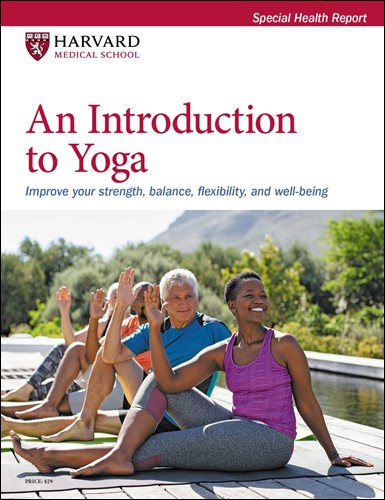Why practice yoga?
Yoga may be the antidote for what ails you. And we’re not just talking about a single problem like back pain or insomnia. According to research, up to 90% of all doctor visits can be attributed to stress-related complaints. In our always-plugged-in, stressed-out lives, yoga provides the respite to make you feel better—not just physically, but mentally and emotionally, too. It is arguably the one tool that we have that simultaneously improves strength, balance, and flexibility, while helping to dial back negative self-talk and ruminations as well as stress from deadlines, financial issues, relationship struggles, and other problems. No pill has the power to improve so many areas of your life at once. Imagine what could happen if you used yoga like you use your toothbrush—for routine self-care, on a daily basis.
In contrast to the daily pressures and demands of modern life, yoga gives you an opportunity to step back and simply be present in the moment—and science is discovering a myriad of benefits to doing that. Here are some of the demonstrated ways yoga can help you:
Improved health. Yoga works on multiple systems of the body at once, so its effects are widespread. Among other things, it can reduce your risk of heart disease and boost your immunity, while easing your back pain and helping to conquer stress eating.
Greater well-being. Several studies show that the more frequently you practice yoga, the more you experience positive emotions, along with greater satisfaction in life, joy, energy, improved quality of life, and an enhanced sense of well-being.
Savings in health care costs. According to a Harvard study in the journal PLOS One, when researchers compared medical costs for 4,400 people before and after relaxation training, which included techniques such as meditation and yoga, they found that people used 43% fewer medical services and reaped estimated savings ranging from $640 to $25,500 per person each year.
Yoga is easier to do than you might think. Photographs of advanced yoga practices may intimidate you, with their gravity-defying postures and pretzel-like contortions. However, basic yoga is accessible to almost everyone and can even be done in a chair. In fact, the more physical limitations you have, the more important it may be for you to try yoga, with its many benefits.













